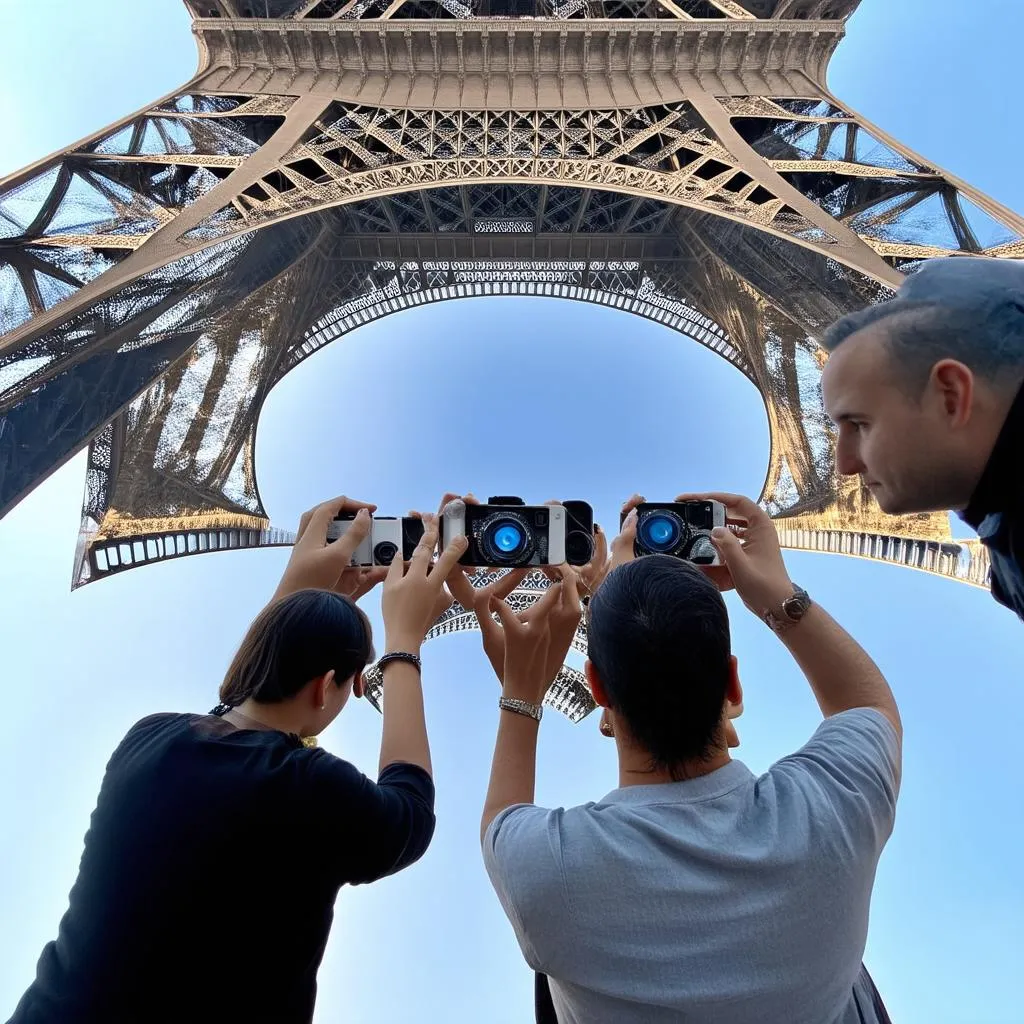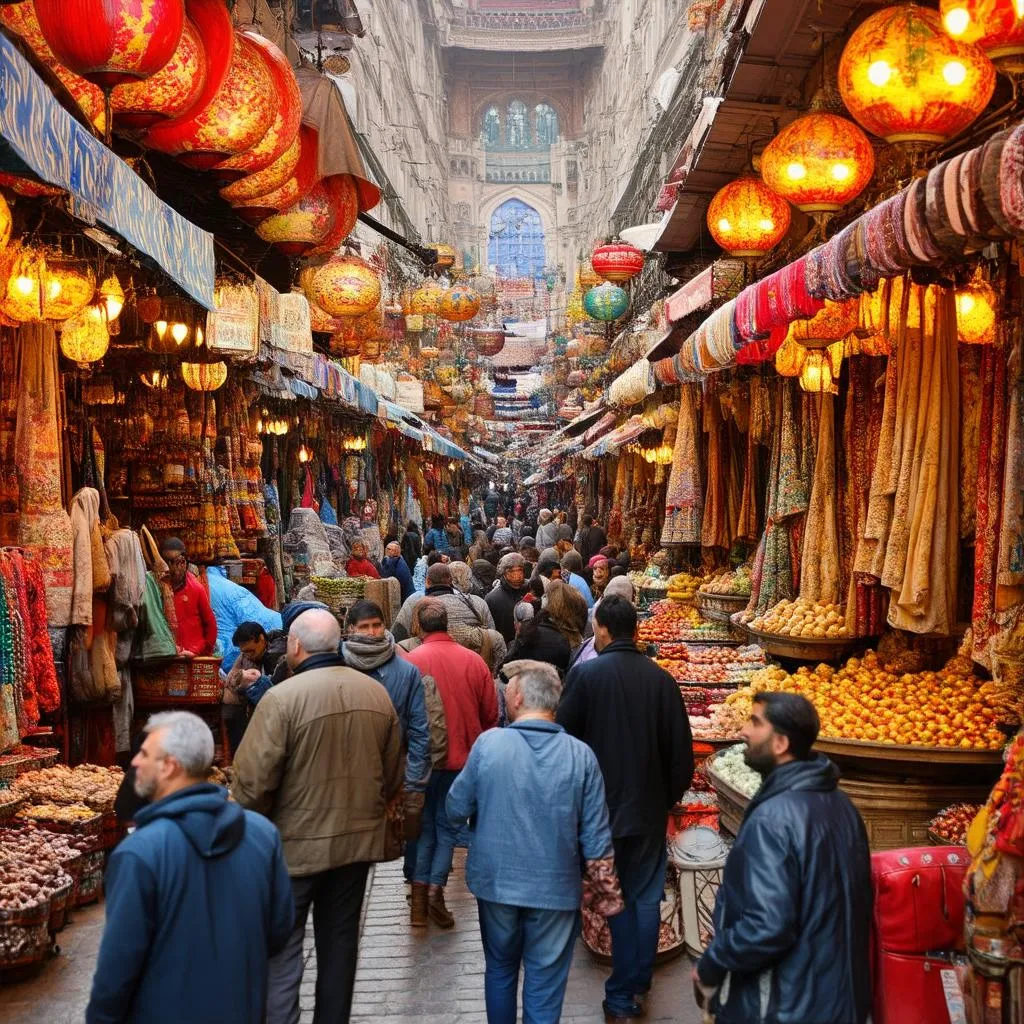Have you ever stood at the foot of the Eiffel Tower, the sun setting on its majestic frame, and wondered about the economic whirlwind this iconic structure sets in motion? Or perhaps strolled through the bustling Grand Bazaar in Istanbul, captivated by its vibrant energy, and pondered the sheer volume of trade fueled by tourism?
Tourism, far beyond being just a leisure activity, is a powerful economic engine, significantly contributing to the Gross Domestic Product (GDP) of many countries worldwide. Let’s delve into the intricate ways tourism shapes economies and why it’s often referred to as the “invisible export.”
How Tourism Injects Vitality into Economies
Tourism’s contribution to GDP goes beyond souvenir purchases and hotel stays. It’s a multifaceted force impacting various sectors:
1. Direct Impact: The most obvious contribution comes from direct spending by tourists on services such as:
- Accommodation: Hotels, resorts, guesthouses, and even home-sharing platforms like Airbnb thrive on tourist influx.
- Transportation: Airlines, trains, buses, taxis, and car rentals directly benefit from tourist movement.
- Food and Beverage: Restaurants, cafes, street food vendors, and bars see a surge in business.
- Entertainment and Recreation: Museums, theme parks, historical sites, and cultural performances depend heavily on tourist spending.
2. Indirect Impact: The ripple effect of tourist spending creates a network of indirect economic benefits:
- Supply Chain: Hotels sourcing local produce for their restaurants or tour operators employing local guides exemplify the indirect impact.
- Infrastructure Development: Tourist destinations often see upgrades in roads, airports, and public transportation, further boosting the economy.
3. Induced Impact: This refers to the multiplier effect of tourism revenue. Employees in the tourism sector spend their wages within the local economy, creating a chain reaction of economic activity.
The Price Tag of Travel: Understanding Tourism’s Economic Footprint
While the economic benefits of tourism are undeniable, it’s essential to acknowledge its potential downsides:
- Seasonality: Many destinations experience peaks and troughs in tourist arrivals, leading to unstable employment and income for locals.
- Environmental Impact: Over-tourism can strain resources, leading to pollution, habitat destruction, and cultural commodification.
- Infrastructure Strain: Increased tourist numbers can burden existing infrastructure, impacting local communities.
 Eiffel Tower Tourists
Eiffel Tower Tourists
Planning a Trip that Benefits Everyone: Responsible Tourism and its Rewards
Professor Amelia Singh, author of “Sustainable Tourism: A Blueprint for the Future,” states, “Tourism, when planned and managed responsibly, has the potential to be a powerful tool for sustainable development.”
Here are ways to ensure your travels contribute positively:
- Choose eco-friendly options: Opt for sustainable accommodations, support local businesses, and minimize your carbon footprint.
- Respect local cultures: Dress appropriately, learn basic phrases in the local language, and be mindful of customs and traditions.
- Engage with communities: Participate in local tours and activities, purchase handicrafts directly from artisans, and engage in meaningful cultural exchange.
FAQs about Tourism’s Economic Impact
- How is tourism’s contribution to GDP calculated?
- It involves measuring direct, indirect, and induced spending by tourists within a specific geographical area.
- Which countries benefit the most from tourism?
- Countries like France, Spain, the United States, and Thailand derive a significant portion of their GDP from tourism.
- How can I learn more about responsible tourism practices?
- Organizations like the World Tourism Organization (UNWTO) and Sustainable Travel International offer valuable resources and guidelines.
 Grand Bazaar Istanbul
Grand Bazaar Istanbul
Embracing Tourism’s Transformative Power
Just as a well-placed wind chime harnesses the energy of the wind to create harmonious sounds, thoughtful tourism can harness economic forces to generate prosperity while preserving cultural heritage and natural beauty.
For more insights into the dynamic world of travel and its impact, explore our other articles on travelcar.edu.vn, your trusted guide to navigating the globe responsibly.